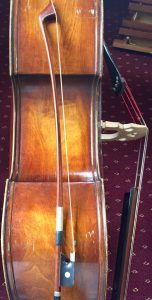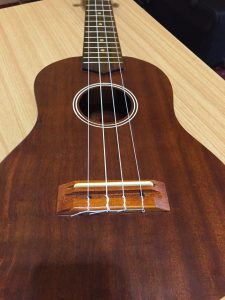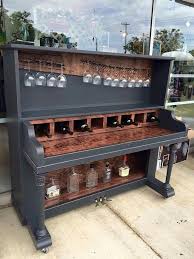The recent election in Australia has shown that climate change is one of the major concerns facing our children and future generations. The Earth has warmed by an average of 1°C in the last century. This might not sound like much but the impact from changing weather patterns that threaten food production, to rising sea levels that increase the risk of catastrophic flooding is global in scope and unprecedented in scale.
So what can we do as music educators? The obvious answer is consume less and reduce waste. Yet putting this into practice requires some lateral thinking and some knowledge about how to recycle our department’s waste – instruments, equipment, unwanted print music and performance uniforms (if applicable).
All musical instruments are made of materials of some kind.

Stringed instruments such as guitars, violins, pianos etc. as well as certain wind instruments (e.g. some clarinets) and many percussion instruments (drums and marimbas) are made of wood. Generally this wood is sourced from a limited number of tree species that assist with tonal characteristics and properties.
Take the average violin for example. Made primarily of wood a violin can use up to 70 pieces of wood, from 10 different kinds of trees. So if we look after just one of these instruments, maintain it in good working order and prolong it’s usability then we can help the environment.
Multiply this out when you think about your school’s orchestra or bands and the additional wooden instruments – violas, cellos, double basses, and pianos. The amount of wood consumed is massive. More wood so more trees are destroyed.
If you can imagine what a difference you can make if the life of just one instrument was prolonged, consider what a difference a band or a whole music department could make, especially when you consider that a school could have up to 500 instruments or more.
To preserve the life of an instrument sounds easy but really requires developing a cultural and behavioural change: A dedicated and secure area to store student instruments when they are at the school will help prevent damage. The provision of shelving can be helpful as shelves enable students to store their instruments on a flat surface off the ground. Providing instrument specific stands such as guitar stands or utilising a wall space to hang them are also useful for storing instruments safely. Additional precautions for storing school instruments over long periods of time can be found at Life Storage. Schedule instruments for repairs when damage is first noticed and ensure all loan instruments undergo a professional maintenance check yearly. Once an instrument is no longer functional they can be recycled by: Remember even the metal in pianos can be recycled. Taking on these small changes and your contribution will be significant … both your students and the world will thank you. Additional information can be found by clicking on the links below: 


